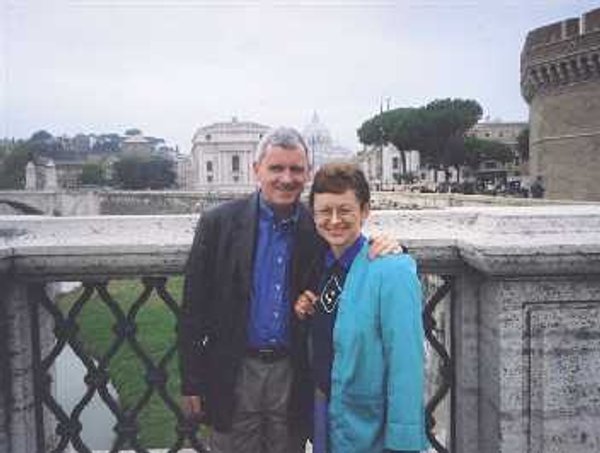Counter-cultural marriage has best chance of success
By KATHLEEN HIGGINS
As my husband and I celebrated our 21st anniversary last year, I reflected on many of the adventures we have lived through.
Since our love for each other has survived for over two decades, and since we seem to have successfully passed on the faith to at least the oldest five of our seven children, I thought it might help younger families if I listed some of the lifestyle choices and ideas that have helped us.
While working as a lawyer in three difference cities in Canada, I have seen the tragedies many families suffer, and don't want anything like this to happen to our family or to any family.
Our family is somewhat counter-cultural. One example is in the area of giving life. John and I welcomed whoever came along. We didn't want contraception or sterilization in our marriage.
It wasn't because of being Catholic. It was because we thought that giving our children brothers and sisters would make them happy, giving them lifelong friends and teaching them that people are more important than things. I found statistics that showed that marriages without contraception and sterilization are many times less likely to end in divorce.
The joy that I experienced as each one of the seven little characters entered our world was more profound than any material thing could produce.
The second break with our culture was that we wanted a simple lifestyle. It was more important for me to care for our children than to continue to practise law and buy them a bigger house and more things.
A smaller, older house, second-hand cars, no cable television, street hockey rather than sports leagues, more trips to Value Village and garage sales than to Toys R Us and the Bay all reduced the financial and scheduling pressures. We encouraged singing instead of competitive sports as a way to develop talent and have family time.
We also began saying the Rosary and invited the children to participate. We can say it sitting in the living room after dinner or while driving together; we fit it in somewhere every day. We decided that asking for God's help through Mary was only logical. I didn't expect human efforts alone to lead our children in the right direction.
A few years into our marriage we discovered Opus Dei. St. Josemaria Escriva, the founder, was canonized last Oct. 6. His writings helped me see how the work I did (and do) as a mother and as a lawyer and how all work is a way to get closer to God and to help other people.
I also learned the importance for a Christian of living human virtues such as patience, loyalty, kindness, and order. Through Opus Dei we realized how permissiveness and authoritarianism were harmful extremes that prevented
children from growing into free and responsible adults.
We spend a lot of time in conversation in our home. The television is not turned on very often. The computer use is controlled. Ideas are exchanged constantly.
We cultivate friendship with our children, especially in their early years.
That way they discuss issues with us when they get older as well.
Everything except morality and doctrine is seen as a matter of opinion. We don't expect our children to vote the same way as their parents.
It will be at least another 15 years before we see how all our children choose to live as adults. Our youngest is only 6.
We will continue to struggle in the same direction as we have during the first 21 years of our marriage, towards a culture that puts people ahead of things and that recognizes the joy of ordinary life.
Kathleen and her husband John Higgins live in Immaculate Conception Parish in Delta, B.C.
Reprinted with permission from the BC Catholic (Vancouver), 31 March 2002.
